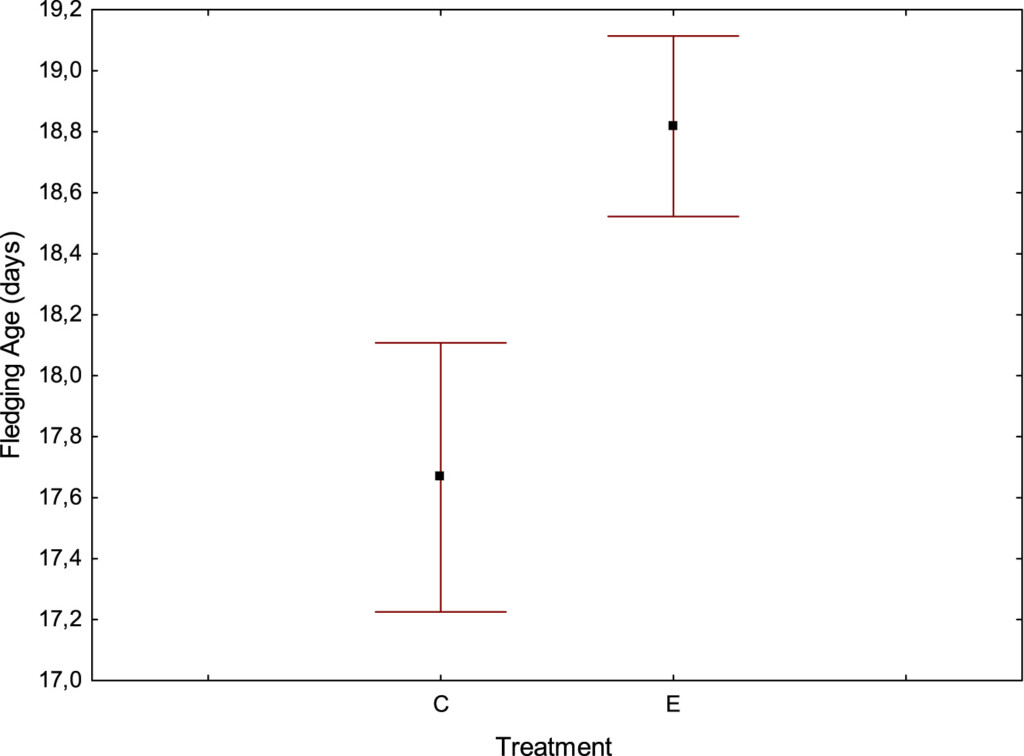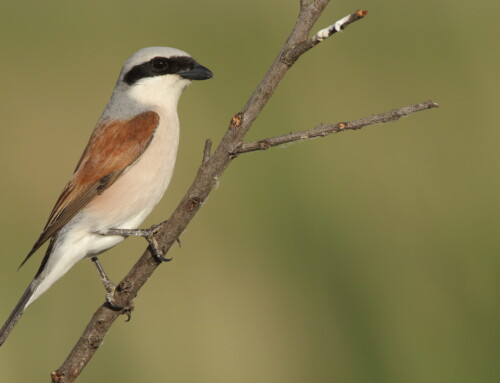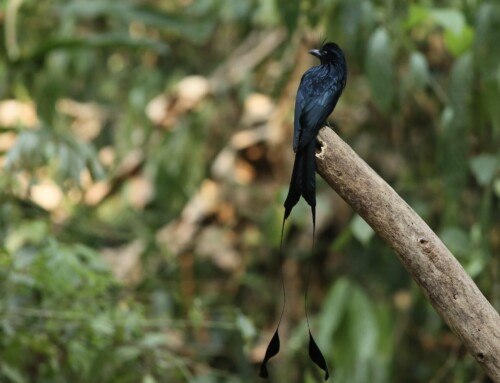
LINKED PAPER
Food supplementation of parents before hatching of the young prolongs the nestling period in European pied flycatchers (Ficedula hypoleuca). Moreno, J. 2022. IBIS. DOI: 10.1111/ibi.13074. VIEW
The nestling period is an important time for young birds, but it is also a critical period for their parents as they balance their own needs against those of their offspring. While a shorter nestling period can reduce parental costs, delayed fledging may improve a chick’s flight capabilities and subsequent survival. It has been suggested that food availability during the breeding period can impact this trade-off between nestling benefits and parental costs.
A previous study on European Pied Flycatchers (Ficedula hypoleuca) showed that food supplementation throughout the breeding period increased nestling period length (Moreno 2020). While this effect could be attributed to improved nestling condition due to direct access to food supplements through parental provisioning, an alternative explanation is that improved parental condition due to supplementation enables parents to prolong the nestling period (Martin et al. 2018, Jones et al. 2021).
This was investigated in a recent study in Ibis by Juan Moreno, who tested if food supplementation of Pied Flycatcher parents prior to hatching (thus excluding the direct effects of nestling supplementation) would lead to delayed fledging due to improved parental condition.
Experimental food supplementation
The study was conducted in 2021 on a monitored nestbox-breeding population of Pied Flycatchers in central Spain, with breeding and reproductive success data collected for 24 nests. Around half of these nests were provided with live mealworms, starting on the first day that nest material was detected until the day the first hatchings were found, while the remaining nests were left as controls.

Figure 1. Fledging age (means with standard errors) in relation to experimental treatment (food supplementation from nest construction until hatching = E; control = C) (F1,18 = 5.00, P = 0.038).
Parent-offspring conflict scenario
The results showed no significant effects of supplementation on laying date, clutch size, nestling growth, or breeding success (proportion of eggs producing fledglings). However, fledging age was found to be significantly delayed. This indicates that the nestling period duration is related to the costs of reproduction (Stearns 1992), and that food supplementation may reduce these energetic and predation costs and allow adults to invest more in their nestlings through prolonged parental care.
Additional data on fledgling wing and tail length indicated that each day of delay likely improved flight capacity at fledging, with the study’s overall conclusion being that improved parental condition promotes a prolongation of the nestling period, with positive effects on fledgling fitness. Additional studies in other cavity-nesting (generally lower nest predation risk) species, and species with higher nest predation risk, would further improve our understanding of this parent-offspring conflict scenario, and the potential implications for the fields of ecology, evolution, and conservation.
References
Jones, T.M., Brawn, J.D., Ausprey, I.J., Vitz, A.C., Rodewald, A.D., Raybuck, D.W., Boves, T.J., Fiss, C.J., McNeil, D.J., Stoleson, S.H. & Larkin, J.L. (2021). Parental benefits and offspring costs represent parent-offspring conflict over the age of fledging among songbirds. Proceedings of the National Academy of Sciences of the United States of America 117: 30539–30546. VIEW
Martin, T.E., Tobalske, B., Riordan, M.M., Case, S.B. & Dial, K.P. (2018). Age and performance at fledging are a cause and consequence of juvenile mortality between life stages. Science Advances 4: eaar1988. VIEW
Moreno, J. (2020). Effects of food availability and parental risk taking on nestling period duration: A field experiment on the Pied Flycatcher Ficedula hypoleuca. Ardeola 67: 29–38. VIEW
Stearns, S.C. (1992). The Evolution of Life Histories. Oxford: Oxford University Press
Image credits
Top right: Pied Flycatcher (Ficedula hypoleuca) | Stefan Berndtsson | CC BY 2.0 Wikimedia Commons
Blog posts express the views of the individual author(s) and not those of the BOU.
If you want to write about your research in #theBOUblog, then please see here




